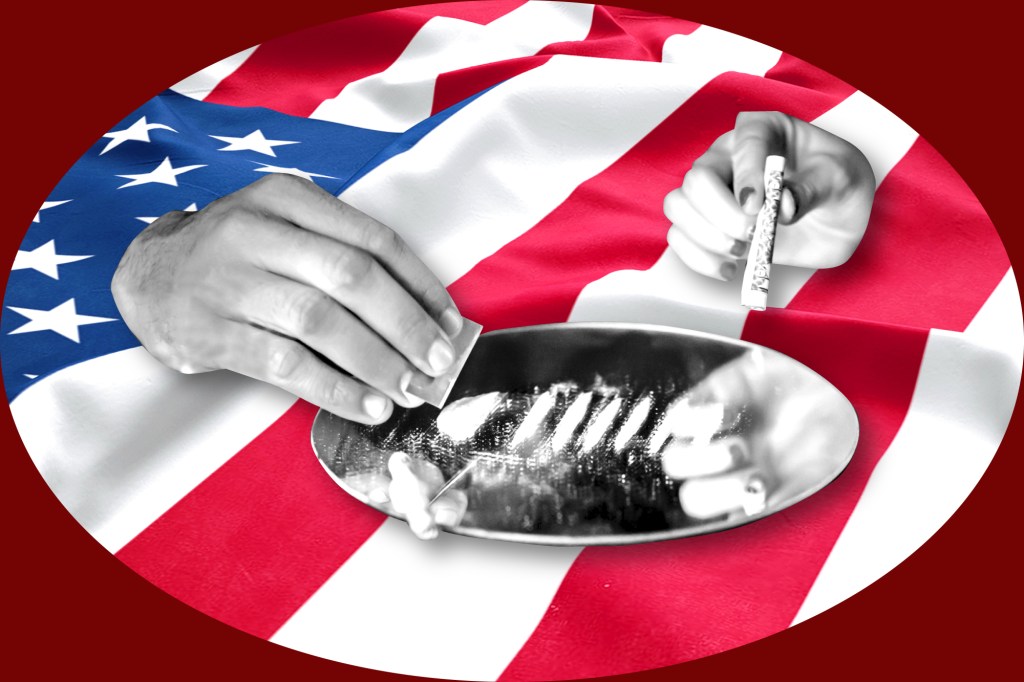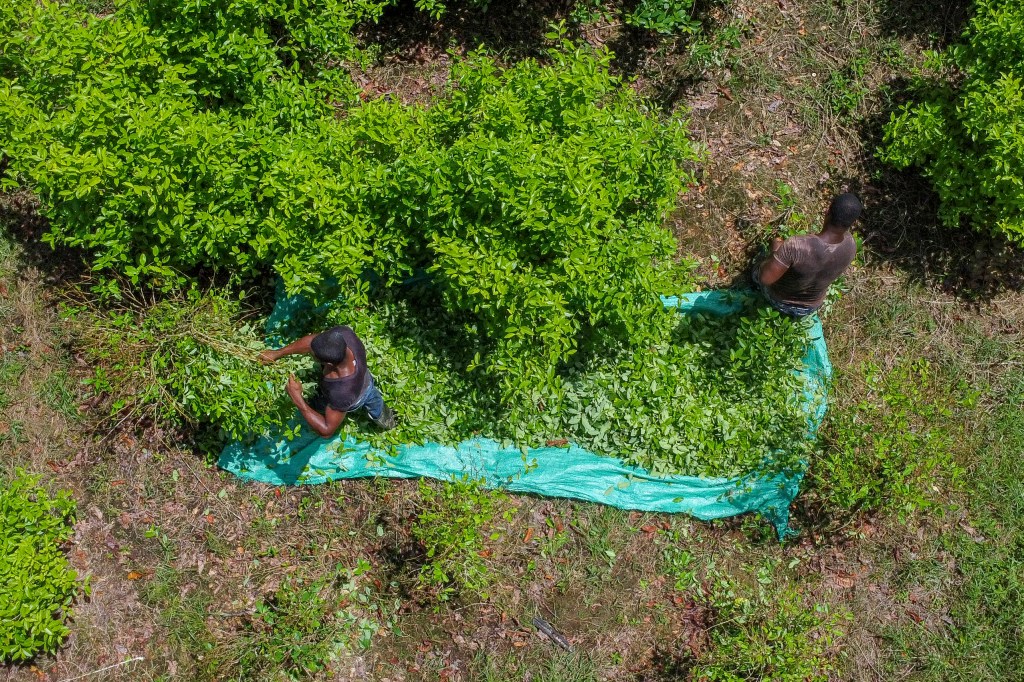Canada firm brazenly bets on cocaine getting legalized in US
A company that just listed shares in the US is making a brazen bet that cocaine will be legalized.
Canada-based Safe Supply claims it’s on “the forefront of the third wave of drug policy reform” – and is lobbying for an end to the war on drugs and the legalization of banned substances like LSD and cocaine, a source told On The Money.
The company, publicly traded in Canada and valued at just around $8.6 million, listed on an over-the-counter exchange in the US last week.
Safe Supply believes that, much like CBD and adaptogenic mushrooms led the way for the decriminalization and legalization of weed and psychedelic mushrooms in some states, a rise in the popularity of the coca leaf — which is nontoxic and nonaddictive, according to the National Institute of Health — will lead the way to cocaine legalization.
In the short term, the company plans to invest in legal coca products, claiming they can do everything from increase energy to address digestive issues. In fact, they are working on bringing several beverages containing coca extract – a legal substance – to market in the US next year.
“Given that the market cap is the price of a nice apartment in Manhattan, the market clearly thinks this is hyper-speculative at best,” one banker said of the likelihood this would take off.
The CEO of Safe Supply, Bill Panagiotakopoulos, likened coca to CBD since “it’s the medicinal rather than psychoactive part of the drug. “It’s amazing — it gives you energy and no jitters.”

But they’re pinning their future on the hope that cocaine will be legalized – and eventually balloon into a $360 billion market, the company predicts.
That’s despite the fact that legalizing cocaine across the US seems far-fetched at best – especially after Oregon has seen drug use surge after decriminalizing the substance.
Even the most progressive lawmakers in Oregon – which decriminalized possession of small amounts of hard drugs in 2020 – are revisiting the decision. According to a report, the move is now “facing strong headwinds in the progressive state after an explosion of public drug use fueled by the proliferation of fentanyl and a surge in deaths from opioids, including those of children.”

Those at Safe Supply claim Oregon should have gone farther to loosen regulation.
“Our perspective is that Oregon’s decriminalization efforts did exactly what they could be expected to do, which was to bring the underground activities above ground, where it could be regulated more effectively,” Panagiotakapoulos insisted. “The problem is that the reform efforts didn’t go far enough.”
Never Miss a Story
Sign up to get the best stories straight to your inbox.
Thanks for signing up!
“Unless a system moves to a full ‘legalize, regulate and educate’ policy, where meaningful public and private investments could be made into ensuring safe supply, providing necessary support resources and educating people on safe and effective use, it was unreasonable to expect outcomes much beyond what has happened already,” he added.
He also points to the fact Portugal decriminalized all hard drugs more than two decades ago. According to a July story on Portugal in the Washington Post, however, “The return in force of visible urban drug use, meanwhile, is leading the mayor and others here to ask an explosive question: Is it time to reconsider this country’s globally hailed drug model?”
It’s too soon to tell whether British Columbia’s decriminalization of drugs or Bern, Switzerland’s legalization of cocaine will be successful.
The company is still trying to get ahead of US legalization by investing in labs that are conducting research on cocaine and buying up tools that will be important — like fentanyl strips — once the drug is legal. Executives are also mulling investments in dispensaries, sources add.
But even in the off-chance it is legalized, others say it may not bring the vast wealth that many had hoped for. These people note that even after the legalization of marijuana, the industry hasn’t brought the vast wealth that some had hoped for.
“At the end of the day it’s just agriculture,” a source with knowledge of the cannabis industry said. “You wouldn’t give a corn farm a multi-billion dollar valuation… and that’s essentially what growing the coca plant is.”